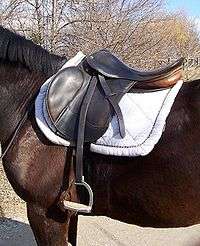Definify.com
Definition 2026
Sega
Sega
English
Proper noun
Sega
- (video games) A Japanese video game developer and publisher and manufacturer of arcade games and formerly of video game consoles.
Translations
videogame developer
Noun
Sega (plural Segas)
- Any of various video game consoles manufactured by this company.
- 2007, S Westwood, Suicide Junkie
- I would lay in bed for a few hours playing games on my Sega, getting totally absorbed in it as though it were all real and then I would sleep for the rest of the day.
- 2007, S Westwood, Suicide Junkie
Translations
console
Anagrams
sega
sega
Catalan
Verb
sega
- third-person singular present indicative form of segar
- second-person singular imperative form of segar
Latvian

Gultas sega

Seglu sega
Etymology
From segt (“to cover”).
Pronunciation
- IPA(key): [sæɡa]
Noun
sega f (4th declension)
- blanket, quilt (large cloth used for covering, especially a bedcover)
- gultas sega ― bed blanket, cover
- bieza, silta sega ― thick, warm blanket
- ietīties, ievīstīties segā ― to wrap oneself in a blanket
- vatēta sega ― quilt blanket, comforter
- dekoratīva sienas sega ― decorative wall quilt
- kamanu sega ― sleigh blanket, cover
- galvas sega, galvassega' ― head'covering (hats, scarves, etc.)
- ceļa sega ― road pavement
- a layer (of something) that covers (something else)
- bieza sniega sega ― a thick snow layer
- seglu, galda sega ― saddle, table cover
- asfalta sega ― a layer of asphalt (e.g., on a road)
- augu sega ― a layer of plants, vegetation
- clouds, fog, smoke, vapors (seen as covering something)
- zila dūmu sega ― a blanket of blue smoke
- tumšpelēkā mākoņu sega virs māju jumtiem ― a dark gray blanket of clouds over house roofs
Declension
Declension of sega (4th declension)
Derived terms
Portuguese
Verb
sega
- third-person singular (ele and ela, also used with você and others) present indicative of segar
- second-person singular (tu, sometimes used with você) affirmative imperative of segar
Veps
Noun
sega
Inflection
| Inflection of sega | |||
|---|---|---|---|
| nominative sing. | sega | ||
| genitive sing. | segan | ||
| partitive sing. | segad | ||
| partitive plur. | segoid | ||
| singular | plural | ||
| nominative | sega | segad | |
| accusative | segan | segad | |
| genitive | segan | segoiden | |
| partitive | segad | segoid | |
| essive-instructive | segan | segoin | |
| translative | segaks | segoikš | |
| inessive | segas | segoiš | |
| elative | segaspäi | segoišpäi | |
| illative | ? | segoihe | |
| adessive | segal | segoil | |
| ablative | segalpäi | segoilpäi | |
| allative | segale | segoile | |
| abessive | segata | segoita | |
| comitative | seganke | segoidenke | |
| prolative | segadme | segoidme | |
| approximative I | seganno | segoidenno | |
| approximative II | segannoks | segoidennoks | |
| egressive | segannopäi | segoidennopäi | |
| terminative I | ? | segoihesai | |
| terminative II | segalesai | segoilesai | |
| terminative III | segassai | — | |
| additive I | ? | segoihepäi | |
| additive II | segalepäi | segoilepäi | |
References
- Zajceva, N. G.; Mullonen, M. I. (2007), “помеха, препятствие”, in Uz’ venä-vepsläine vajehnik / Novyj russko-vepsskij slovarʹ [New Russian–Veps Dictionary], Petrozavodsk: Periodika